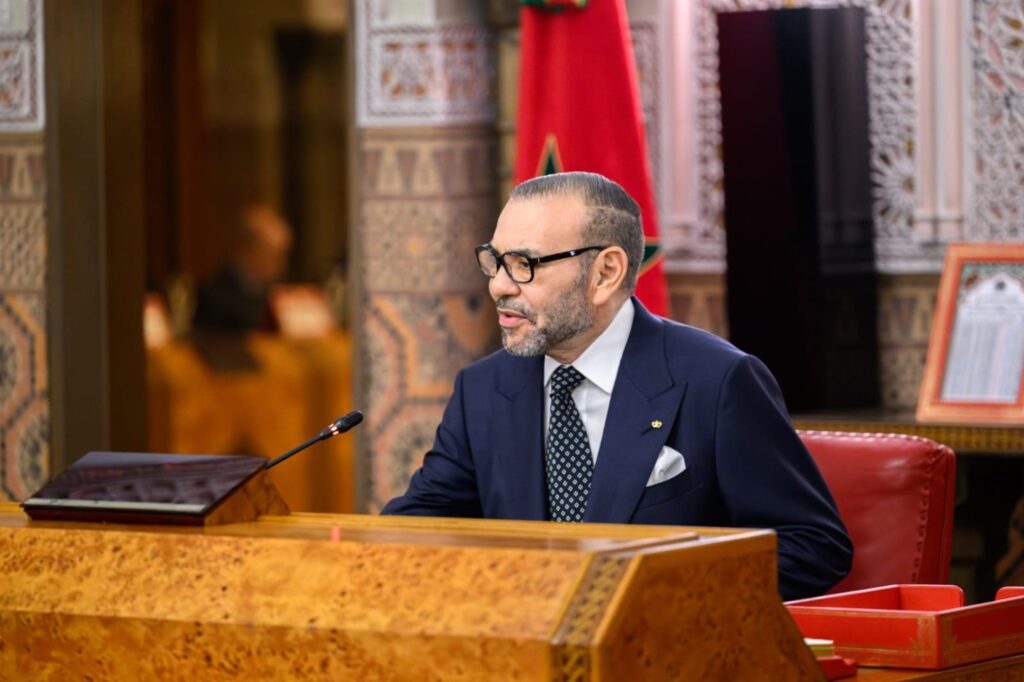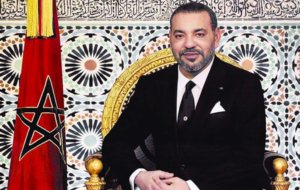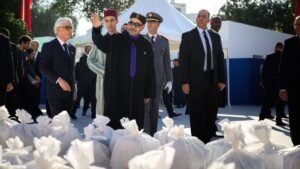Morocco Hails UN Resolution on Western Sahara as ‘Historic Turning Point’

Rabat, The Gulf Observer: Morocco celebrated what the Royal Palace has described as a “historic turning point” in the decades-long Western Sahara dispute, following the United Nations Security Council’s adoption of a resolution placing Morocco’s 2007 Autonomy Plan at the center of the political process.
In a special address to the nation, broadcast shortly after the Security Council vote, King Mohammed VI hailed the adoption of the resolution as the beginning of a decisive new phase in Morocco’s territorial integrity, declaring, “There is a before October 31, 2025 era, and an after October 30.”
The King stated that after 50 years of sacrifice, Morocco is now entering a new chapter in consolidating the “Moroccanness of the Sahara” and closing the chapter on what he termed a “fabricated conflict” through a consensual solution grounded in the Autonomy Initiative. He reaffirmed that Morocco seeks a negotiated, dignified settlement that produces “neither winners nor losers.”
The Security Council resolution, adopted on Friday with a clear majority and no vetoes from permanent members, endorses the Autonomy Plan as a realistic and credible basis for a lasting political solution. The resolution also extends the mandate of MINURSO, the UN peacekeeping mission in Western Sahara, until October 2026.
Eleven members of the Council, including the United States, France, and the United Kingdom, voted in favor, while three abstained and none opposed, marking a significant diplomatic success for Rabat. The resolution urges all parties to resume negotiations without preconditions, using the Moroccan proposal as the framework for dialogue.
In his address, King Mohammed VI described the moment as a “source of pride” that coincides with the 50th anniversary of the Green March and the 70th anniversary of Morocco’s independence. He emphasized, “This is a pivotal moment and a crucial turning point in the history of modern Morocco. The time has come for a unified Morocco to emerge — from Tangier to Lagouira — a Morocco whose rights and historical borders would not be infringed upon by anyone.”
The Moroccan Autonomy Initiative, proposed in 2007, has gained growing international recognition and support in recent years, particularly from Western powers including the US, France, the UK, and Spain. The King highlighted that two-thirds of UN member states now regard the initiative as the only viable framework for resolving the dispute.
He also welcomed the increasing acknowledgment of Morocco’s economic sovereignty over its southern provinces by major economic powers and blocs such as the US, France, the UK, Russia, Spain, and the European Union.
“This means our southern provinces can now become a hub for development and stability, and a major economic center in the region, including the Sahel and the Sahara,” the monarch noted.
Observers say the latest UN resolution marks the clearest validation yet of Morocco’s diplomatic strategy, which has steadily expanded international support for its autonomy plan while isolating Algeria and the Polisario Front on the global stage.
The development, analysts believe, cements Morocco’s growing diplomatic influence and underscores the shifting dynamics surrounding one of North Africa’s most enduring geopolitical disputes.


